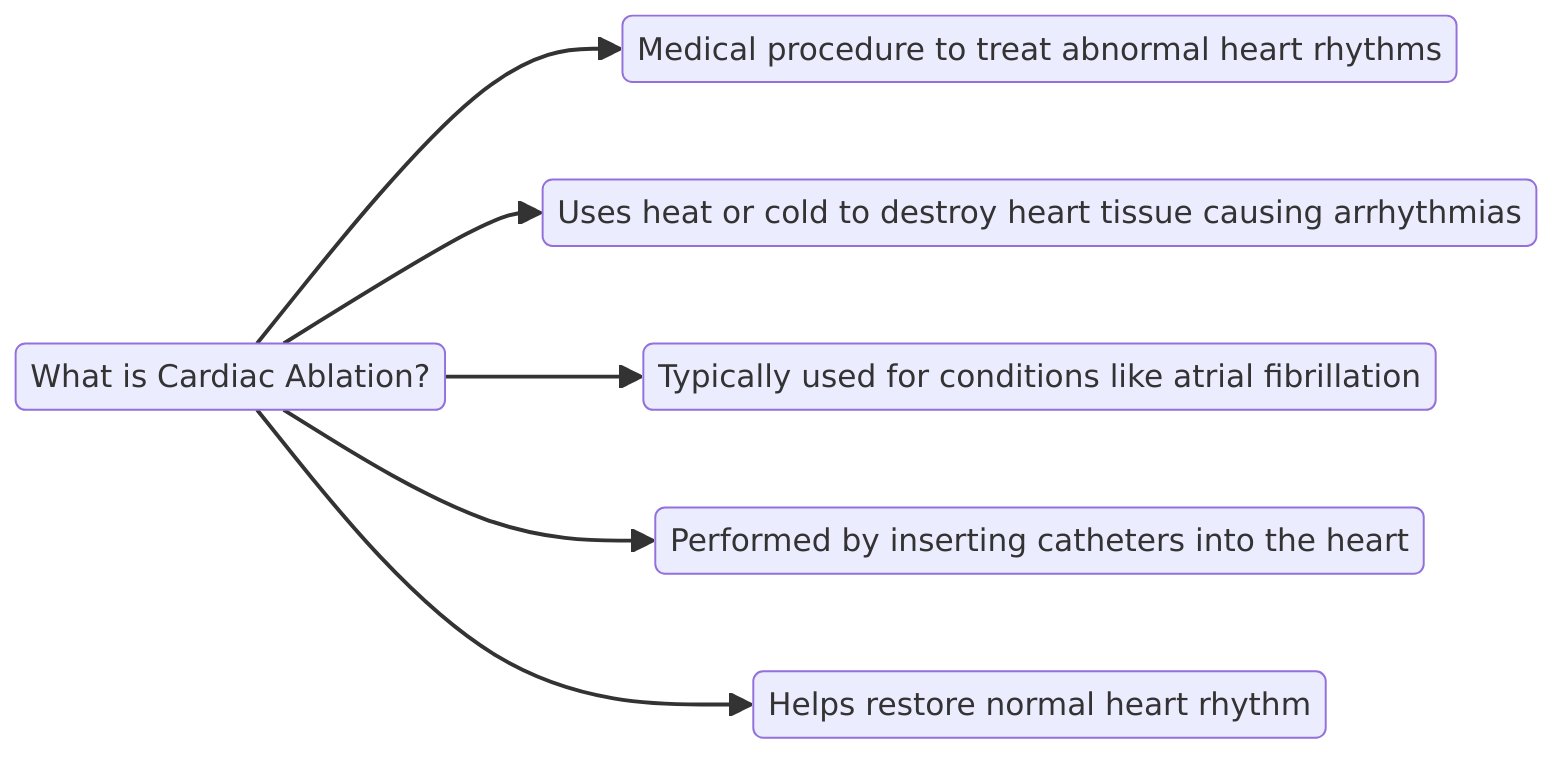Cardiac ablation might sound like a fancy medical term, but if you’ve got an irregular heartbeat (called arrhythmia), it’s something you may need to consider. Now, if you’re on Medicare, you’re probably asking: Does Medicare cover cardiac ablation? Short answer: Yes—but like anything with Medicare, it’s got some strings attached. Let’s dive into it in a way that makes sense—without all the confusing medical lingo.
What is Cardiac Ablation?
So, cardiac ablation is a procedure where doctors zap or freeze small areas of your heart that are causing your irregular heartbeat. It can make a huge difference for a lot of people, helping get their heart rhythm back on track. Sounds great, right? But like anything, there are risks (and we’ll talk about those too).
Types of Cardiac Ablation
There are two main types:
- Radiofrequency Ablation: Uses heat to burn the problem area
- Cryoablation: Freezes the trouble spot
Each one has its perks. If the thought of burning heart tissue sounds intense, cryoablation might sound better—though freezing parts of your heart isn’t exactly a picnic either.
Find Medicare Plans in 3 Easy Steps
We can help get up to $0 monthly premium Medicare plans
Does Medicare Cover Cardiac Ablation?
The good news—Medicare does cover cardiac ablation. But how much you pay and what’s covered depends on the type of Medicare you’ve got. Yeah—Medicare has a few moving parts, but don’t worry, I’ll keep it simple.
Medicare Part A
Part A covers hospital stays, so if you need to stay overnight after your cardiac ablation, this part’s got you covered. Just remember, you’ve got a deductible to meet before Medicare kicks in. So, it’s not a free pass—sorry.
Medicare Part B
If you’re doing the procedure outpatient (meaning you go home the same day), Part B comes into play. After you meet your deductible, you’ll pay 20% of the Medicare-approved cost. So yeah, Medicare helps—but your wallet might still feel a little lighter.
Medicare Advantage (Part C)
If you’ve gone the Medicare Advantage (Part C) route, your coverage depends on the plan you picked. These are private insurance plans that have to cover what Original Medicare does, but the details like copays and deductibles can vary. It’s worth giving your provider a quick call to get the scoop.
Henry Beltran, owner of Medicare Advisors Insurance Group LLC, says, “Check your plan before the procedure—it’s better to know upfront than get surprised later with a bill you weren’t expecting.”
Medicare Part D
Part D—this one’s for prescription drugs, not the actual procedure. If you need meds after your ablation, Part D might help with that—but it’s not covering the ablation itself.
Medigap
Got a Medigap plan? Good news—this supplemental insurance helps cover those pesky deductibles and coinsurance that Medicare doesn’t. Think of it as a safety net for your out-of-pocket costs.
What Could You Still End Up Paying?
- Deductibles: You’ll need to meet this before Medicare covers anything
- Coinsurance: After the deductible, you still pay part of the cost—usually 20%
- Out-of-pocket maximums: This varies based on your plan and could limit how much you pay
Potential Risks of Cardiac Ablation
Alright, let’s talk about the risks. No procedure is risk-free—and cardiac ablation has a few you should know about. But don’t worry, I’ll keep it real with a little humor to take the edge off.
Damage to Blood Vessels
In rare cases, the catheter (the little tube they use) can damage a blood vessel while they’re working on your heart. It’s like threading a needle in the dark—and that needle happens to be inside you. Yikes.
Puncturing the Heart
This one sounds like it belongs in a horror movie, but it’s real (though super rare). The catheter could accidentally poke a hole in your heart. Let’s just hope your doctor’s aim is on point!
Arrhythmia After the Procedure
Imagine going through all that—and your arrhythmia comes back. It’s like fixing a squeaky door just to have it start squeaking again. Annoying, but sometimes it happens.
Infection
Any time someone sticks something in your body, there’s a risk of infection. Hospitals are cleaner than they used to be—but still, not a guarantee.
Find Medicare Plans in 3 Easy Steps
We can help get up to $0 monthly premium Medicare plans
Getting Ready for Your Cardiac Ablation
Let’s make sure you’re ready for this. Here’s a quick checklist of things to keep in mind before your procedure.
- Talk to your cardiologist: Always good to get their advice
- Double-check your Medicare plan: Know what’s covered and what’s not
- Plan for a ride home: Trust me—you won’t want to drive after this
- Watch your meds: Your doctor might tell you to stop certain medications before the procedure
After the Procedure
Congratulations—you made it through! Now what?
What Happens After?
- Take it easy: You’re probably going to feel wiped out for a bit—no need to rush back into your normal routine
- Follow-up meds: Your doctor may prescribe something to help keep your heart steady post-procedure
- Follow-up appointment: You’ll need to check in with your doctor to make sure everything’s working right
Long-term Recovery
Most people do great after cardiac ablation, but don’t be discouraged if you don’t feel 100% right away. It might take a little time. Henry Beltran says, “I’ve seen folks come out of this feeling like new—but take it slow and give yourself time to heal properly.”
Common Questions About Medicare and Cardiac Ablation
Q: Will Medicare cover a second ablation if I need one?
Yep—if it’s medically necessary. Just make sure to talk to your doctor about why you might need another round.
Q: Do I need approval for cardiac ablation under Medicare?
Sometimes—especially with Medicare Advantage plans. Make a quick call to your provider to find out.
Q: Does Medicare cover pre-procedure doctor visits?
Yes—Part B will cover consultations with your doctor before the procedure. So no worries there.
Find Medicare Plans in 3 Easy Steps
We can help get up to $0 monthly premium Medicare plans
Final Thoughts
Yes—Medicare covers cardiac ablation, but it’s crucial to know how your specific plan works and what costs you might still face. Check your deductibles, copays, and coinsurance so you’re not caught off guard. And like Henry Beltran says, “Keep an open line of communication with your doctor and Medicare provider. The more you know, the smoother everything will go.”
In the end—cardiac ablation could be exactly what you need to manage your arrhythmia. And with Medicare on your side, you’ve got help to handle the costs—just don’t forget the fine print!







